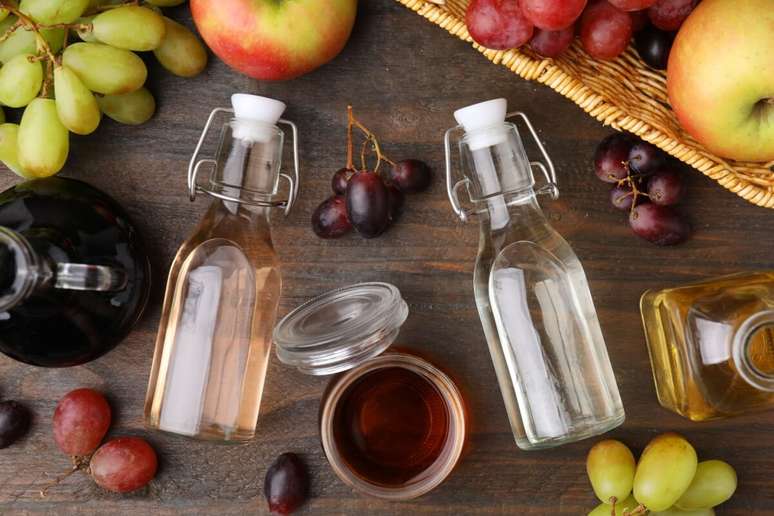Some precautions are important to avoid the proliferation of microorganisms that can put your health at risk
Storing vinegar improperly can pose health risks. Jéssica Felipe, professor of the Nutrition course at the Faculdade Anhanguera, warns that an altered product can cause infections, poisoning, vomiting, diarrhea, fever, abdominal cramps, among other symptoms. The word “vinegar” comes from the French “vinaigre”, which means “sour wine”, but is actually the result of the transformation of alcohol into acetic acid by acetic acid bacteria.
Have you ever stopped to think about what would be the ideal place to live? shop vinegar? According to the nutritionist, inadequate storage can provide favorable conditions for microbial growth and multiplication, which can alter everything from organoleptic characteristics (odor, color, texture and flavor) to safety for consumption.
“Some microorganisms can cause anything from mild symptoms, such as vomiting and diarrhea, to more serious complications, such as neurological disorders and generalized infections, or even lead to death, depending on the microorganism, the amount and intensity of multiplication in the food ” he warns.
The main factors that contribute to the deterioration of vinegar are the manufacturing process carried out inappropriate waywithout hygienic and microbiological control, resulting in a contaminated product from production to incorrect storage, favoring microbiological development.
Main changes that can occur in vinegar
According to the Brazilian Agricultural Research Corporation (EMBRAPA), the main changes that can occur in vinegar are caused by agents such as:
- Eaglet in vinegar (Eel vinegars): a small nematode that develops especially in weak vinegars, causing unpleasant odors, but not harmful to health;
- Vinegar fly (Drosophylla melanogaster): responsible for the transmission of infectious microorganisms;
- Chemical elements: such as iron and copper, which in high concentrations cause darkening, cloudiness and a metallic taste;
- Various microorganisms: such as bacteria, fungi and mites, which can contaminate vinegar, making it unfit for consumption.
Jéssica Felipe points out that, due to the fermentation of fruit by acetobacteria, vinegar is naturally susceptible to the growth of bacteria and other microorganisms. “Inadequate storage, such as leaving it uncovered in damp, dirty, vector-rich locations, promotes microbial growthincreasing the risk of contamination by pathogens,” he warns.
Signs of improper vinegar storage include changes in the natural characteristics of the product, such as darkening in color, increased acidity in flavor, a different odor than usual, a more viscous consistency, and the presence of cloudiness or gelatinous matter at the base of the vinegar . the packaging.

How to store vinegar correctly
The nutritionist recommends storing the vinegar in a cool, ventilated place before opening, away from humidity and heat sources. “Once opened, it must be stored in the refrigerator and covered. It is essential to follow the manufacturer’s recommendations on the label and respect the expiry date of the product. The National Health Surveillance Agency (Anvisa) requires the manufacturer to provide clear instructions on the storage, shelf life, production date and expiry date of the product,” he explains.
The teacher warns that neglecting storage and conservation of vinegar promotes the proliferation of microorganisms, some of which can cause diseases in the human body. “Many pathogenic microorganisms grow in temperature ranges between 25°C and 45°C, the famous room temperature. Therefore it is essential to avoid storage in humid and hot places,” he explains.
According to her, every care is important to ensure the quality and health of the product. “Contamination by pathogenic microorganisms can cause infections, poisoning and alterations of various organs and tissues, even putting life at risk. It is essential to follow the recommendations contained in the label to keep the food intact and suitable for consumption, avoiding any damage health,” he says.
By Bianca Lodi Rieg
Source: Terra
Ben Stock is a lifestyle journalist and author at Gossipify. He writes about topics such as health, wellness, travel, food and home decor. He provides practical advice and inspiration to improve well-being, keeps readers up to date with latest lifestyle news and trends, known for his engaging writing style, in-depth analysis and unique perspectives.








